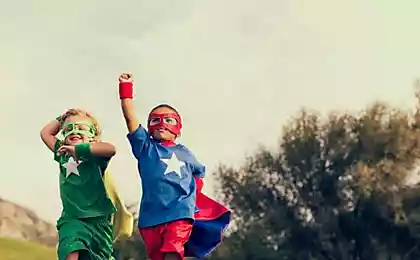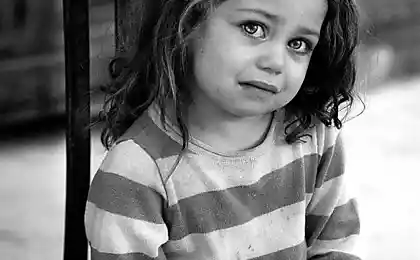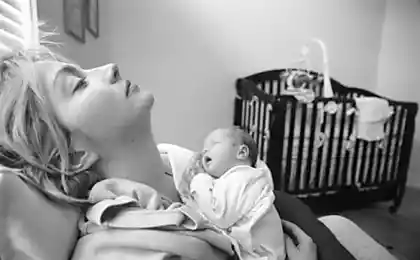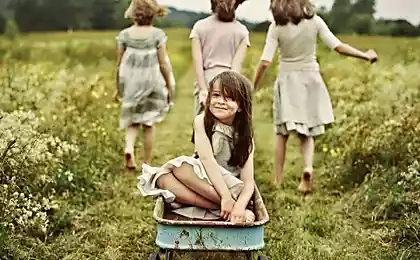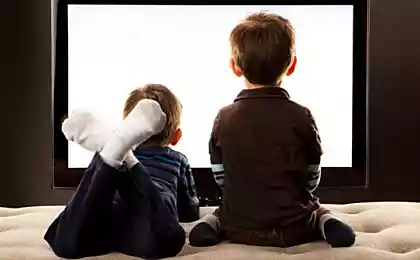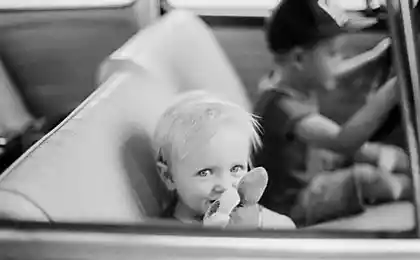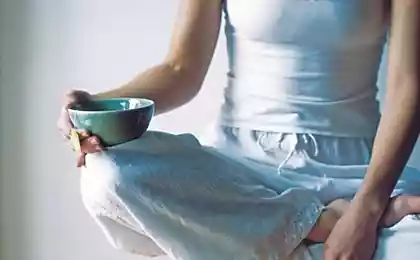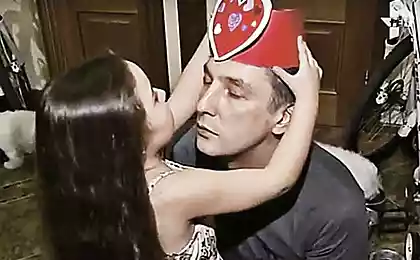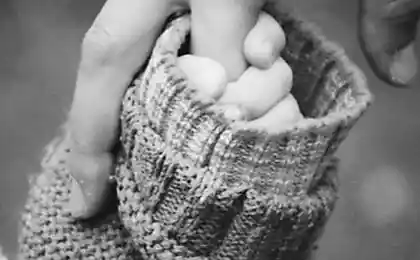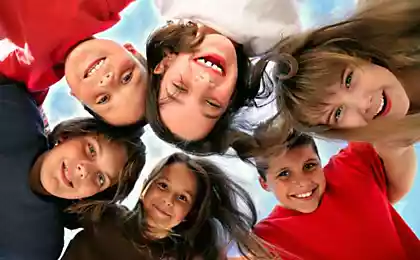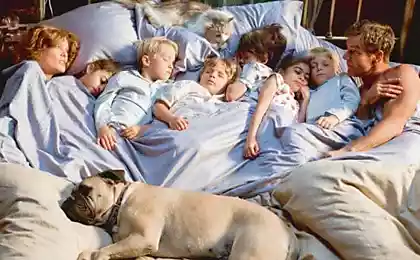1034
The worst thing is when children are starving
Military photojournalist Marcus Blisdeyl visited Djibouti, where the main scourge of the country is not a military conflict, and poverty elementary.
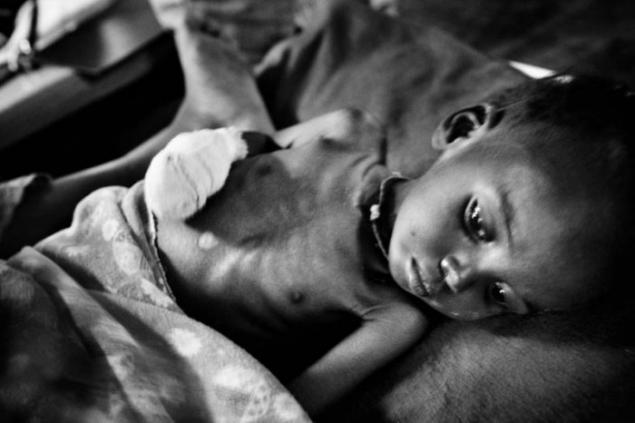
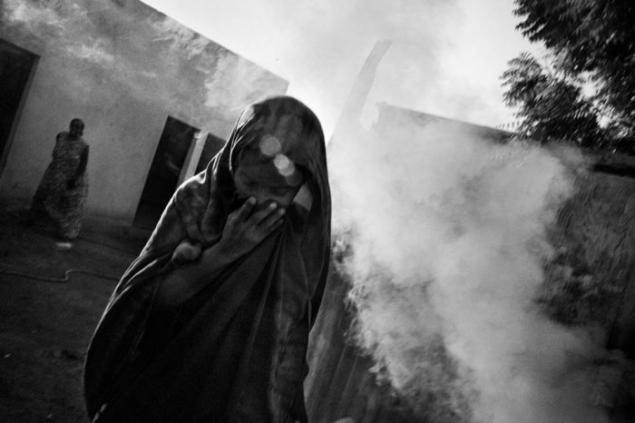
Marcus Blisdeyl photographed the scars left by the conflict in Somalia, the Democratic Republic of Congo, Kashmir and Nepal, where, due to decades of incessant wars the local people hiding in bomb shelters or temporary homes without food or drinking water. What he found in Djibouti, a small unknown country on the Horn of Africa, it seemed incredibly familiar. Only this time, hunger is not the result of war and poverty. "In these circumstances, life is like living in a conflict zone," - says the photographer. (MARCUS BLEASDALE)
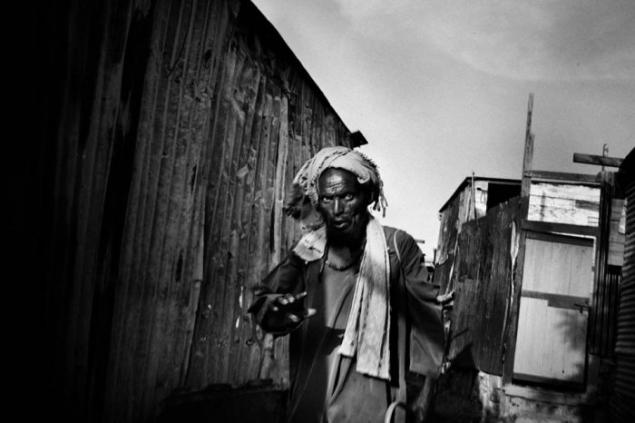
Djibouti - a place of transition, it serves as a base for military operations in Africa and the Middle East for the troops of Britain, France, Spain and the United States. In the eponymous capital of Djibouti attracts residents of nearby poor villages in search of work, they are not usually found, as well as refugees from neighboring countries, mainly from Eritrea, Ethiopia and Congo. (MARCUS BLEASDALE)
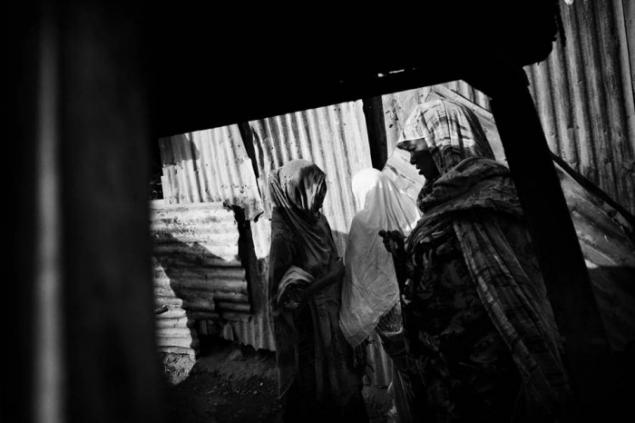
Djibouti The poor live in slums on the outskirts of the city in huts made of corrugated steel and other scrap metal. The government refuses to establish water supply system in the slums, thinking that no conditions prevent normal people to settle there. But it does not help. (MARCUS BLEASDALE)
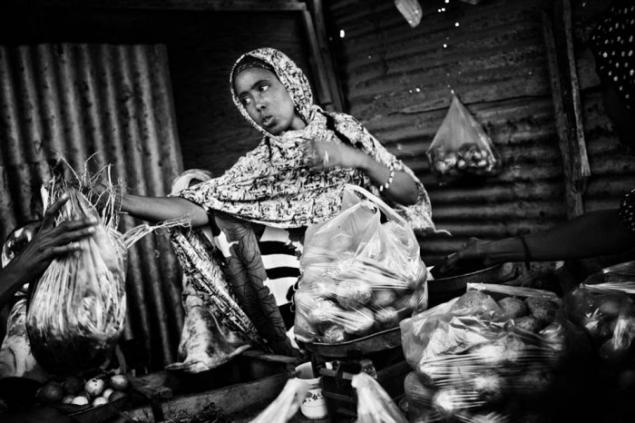
Given the disgusting quality fields and pastures in the country, most of the products imported in Djibouti at a fabulous price. In supermarkets, designed for middle-class families, there are a lot of products. However, slum dwellers, these products are too expensive. "This contrast struck me - said Blisdeyl. - Next to the mansions of the middle class lives here a great number of urban poor. " (MARCUS BLEASDALE)
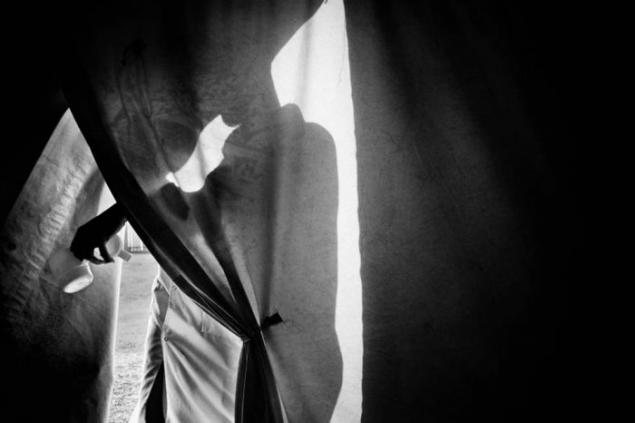
Not so long ago I visited Blisdeyl therapeutic clinic «Médecins Sans Frontières» on the outskirts of Djibouti. It opened in 2009, it is one branch of the food unit for the most serious cases of exhaustion, and two minor branch. (MARCUS BLEASDALE)
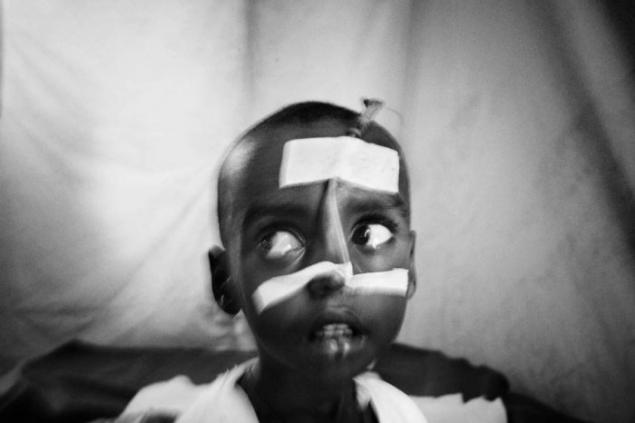
The child is sitting in the emergency room hospital with a gastrointestinal feeding tube. In this department there is almost never available beds. (MARCUS BLEASDALE)
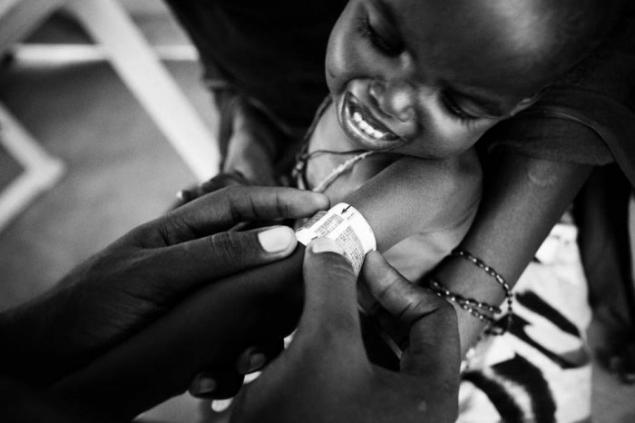
The child is wearing a bracelet with information about his condition. All the children in the clinic there are bracelets, different color: green, orange or red, depending on the severity of the disease. (MARCUS BLEASDALE)
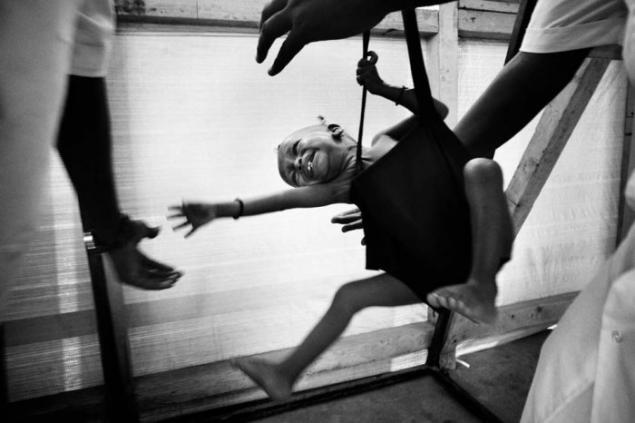
The process of weighing for the first time is almost always scares children. (MARCUS BLEASDALE)
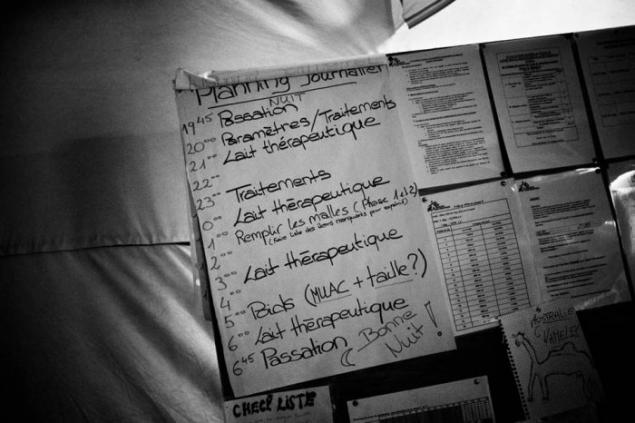
Daily schedule. Children are fed every three hours. (MARCUS BLEASDALE)
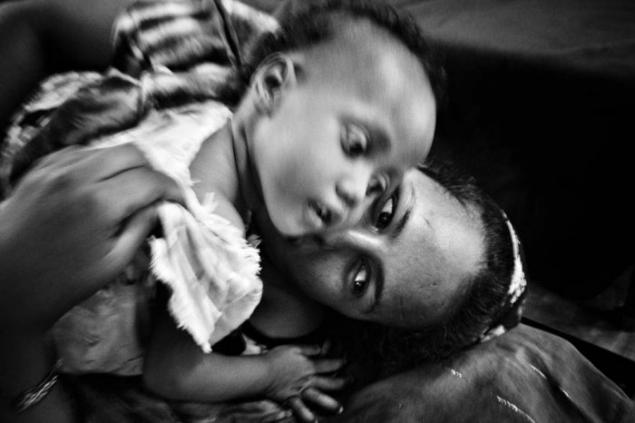
Many mothers stay with their children in the clinic and are responsible for their feeding. "We are always present poverty and hunger in a bad child in the bare steppe, - says Blisdeyl. - But the mother should always be near. " (MARCUS BLEASDALE)
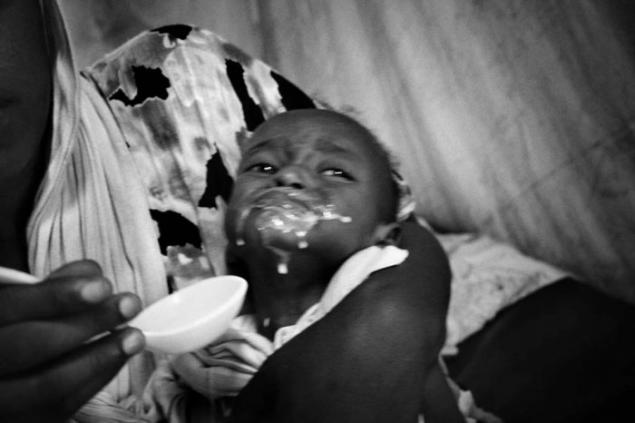
This baby is strong enough to eat in the usual way - through the mouth. (MARCUS BLEASDALE)
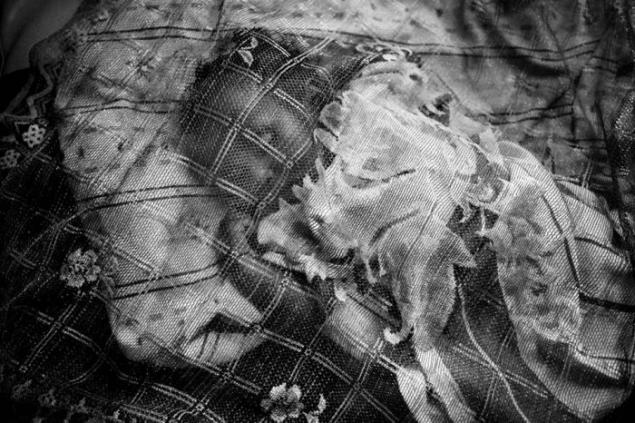
The child sleeps on a bed, covered with a net from flies. (MARCUS BLEASDALE)
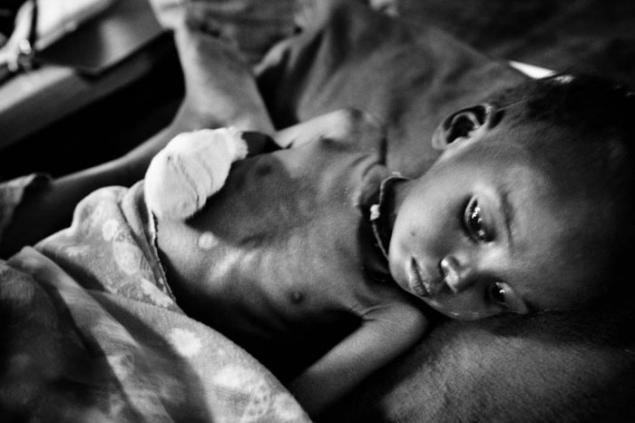
"Poverty lasts much longer than the war or famine, - says the photographer. - It is not so easy to see the solution to this problem. " (MARCUS BLEASDALE)


Marcus Blisdeyl photographed the scars left by the conflict in Somalia, the Democratic Republic of Congo, Kashmir and Nepal, where, due to decades of incessant wars the local people hiding in bomb shelters or temporary homes without food or drinking water. What he found in Djibouti, a small unknown country on the Horn of Africa, it seemed incredibly familiar. Only this time, hunger is not the result of war and poverty. "In these circumstances, life is like living in a conflict zone," - says the photographer. (MARCUS BLEASDALE)

Djibouti - a place of transition, it serves as a base for military operations in Africa and the Middle East for the troops of Britain, France, Spain and the United States. In the eponymous capital of Djibouti attracts residents of nearby poor villages in search of work, they are not usually found, as well as refugees from neighboring countries, mainly from Eritrea, Ethiopia and Congo. (MARCUS BLEASDALE)

Djibouti The poor live in slums on the outskirts of the city in huts made of corrugated steel and other scrap metal. The government refuses to establish water supply system in the slums, thinking that no conditions prevent normal people to settle there. But it does not help. (MARCUS BLEASDALE)

Given the disgusting quality fields and pastures in the country, most of the products imported in Djibouti at a fabulous price. In supermarkets, designed for middle-class families, there are a lot of products. However, slum dwellers, these products are too expensive. "This contrast struck me - said Blisdeyl. - Next to the mansions of the middle class lives here a great number of urban poor. " (MARCUS BLEASDALE)

Not so long ago I visited Blisdeyl therapeutic clinic «Médecins Sans Frontières» on the outskirts of Djibouti. It opened in 2009, it is one branch of the food unit for the most serious cases of exhaustion, and two minor branch. (MARCUS BLEASDALE)

The child is sitting in the emergency room hospital with a gastrointestinal feeding tube. In this department there is almost never available beds. (MARCUS BLEASDALE)

The child is wearing a bracelet with information about his condition. All the children in the clinic there are bracelets, different color: green, orange or red, depending on the severity of the disease. (MARCUS BLEASDALE)

The process of weighing for the first time is almost always scares children. (MARCUS BLEASDALE)

Daily schedule. Children are fed every three hours. (MARCUS BLEASDALE)

Many mothers stay with their children in the clinic and are responsible for their feeding. "We are always present poverty and hunger in a bad child in the bare steppe, - says Blisdeyl. - But the mother should always be near. " (MARCUS BLEASDALE)

This baby is strong enough to eat in the usual way - through the mouth. (MARCUS BLEASDALE)

The child sleeps on a bed, covered with a net from flies. (MARCUS BLEASDALE)

"Poverty lasts much longer than the war or famine, - says the photographer. - It is not so easy to see the solution to this problem. " (MARCUS BLEASDALE)









